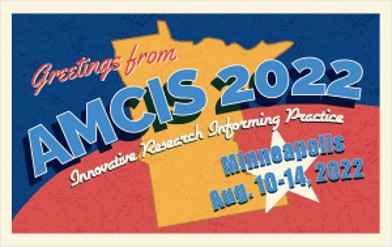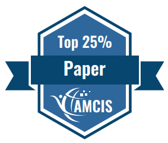VCC - Virtual Communities and Collaboration
Loading...
Paper Type
Complete
Paper Number
1440
Description
The virtual communities of PC and console-based Multiplayer Online Games (MOGs) such as Fortnite or League of Legends continue to grow in popularity and attract millions of players around the world. Despite numerous enjoyable outcomes, some concerns have emerged regarding toxic player behavior such as sexism towards female players. In this study, based on the social identity approach and the contact hypothesis, we adopt the perspective of male players to examine the relationships between positive and negative contact and benevolent and hostile sexism in MOGs. We tested our proposed research model with data from 116 male players. In our sample, negative intergroup contact increased both measured forms of sexism (benevolent and hostile), whilst positive intergroup contact had no impact on either, partially confirming predictions from the contact hypothesis. Our work contributes to the discussion on intervention strategies to curb sexism in all its forms in MOGs.
Recommended Citation
Kordyaka, Bastian; Krath, Jeanine; Laato, Samuli; Park, Solip; Jahn, Katharina; and Niehaves, Bjoern, "Exploring the Dark Side of Multiplayer Online Games: The Relationship between contact experiences and sexism" (2022). AMCIS 2022 Proceedings. 3.
https://aisel.aisnet.org/amcis2022/vcc/vcc/3
Exploring the Dark Side of Multiplayer Online Games: The Relationship between contact experiences and sexism
The virtual communities of PC and console-based Multiplayer Online Games (MOGs) such as Fortnite or League of Legends continue to grow in popularity and attract millions of players around the world. Despite numerous enjoyable outcomes, some concerns have emerged regarding toxic player behavior such as sexism towards female players. In this study, based on the social identity approach and the contact hypothesis, we adopt the perspective of male players to examine the relationships between positive and negative contact and benevolent and hostile sexism in MOGs. We tested our proposed research model with data from 116 male players. In our sample, negative intergroup contact increased both measured forms of sexism (benevolent and hostile), whilst positive intergroup contact had no impact on either, partially confirming predictions from the contact hypothesis. Our work contributes to the discussion on intervention strategies to curb sexism in all its forms in MOGs.
When commenting on articles, please be friendly, welcoming, respectful and abide by the AIS eLibrary Discussion Thread Code of Conduct posted here.




Comments
VCC